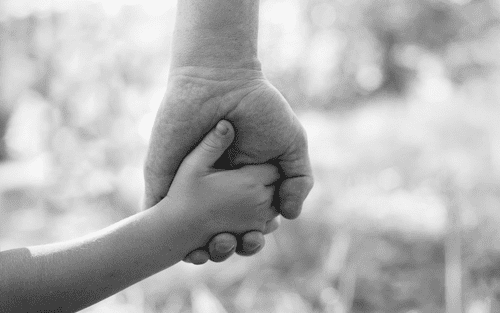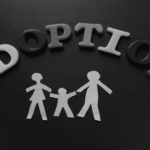What Is ICWA?
The Indian Child Welfare Act (“ICWA”) is a federal law enacted in 1978 that transfers power to tribal governments to intervene in the placement of Native American children. This law is designed to preserve Native American culture and familial ties by exhausting efforts to place Native children within the tribal setting of where (1) their extended family; (2) other member’s of that child’s tribe; and/or (3) other Indian families reside. The research backing this effort found that there was a large displacement of Native children from their biological and extended families by private adoption agencies and state child welfare programs. “In fact, research found that 25% – 35% of all Native children were being removed; of these, 85% were placed outside of their families and communities–even when fit and willing relatives were available.” See NICWA for more history.
How Does It Apply To My Case?
For purposes of this blog we will assume that you are a non-Native party intending to adopt a Native American child. If any party to an involuntary, voluntary or emergency child custody proceeding has any reason to believe, or actually knows that the child is a Native child or of Native descent, then they are required to disclose it to the court. See 25 C.F.R. § 23.107. The courts require a statement of whether the child is subject to ICWA in your initial adoption filings or stated on the record. This applies to all related types of proceedings discussed below.
How Do I Know What Type Of Proceeding It Is?
There are three major types of proceedings. An involuntary proceeding is one in which you have not received consent from the biological parents of the child to terminate their parental rights or for placement. A voluntary proceeding is one in which consent was received by one parent, both, or the Indian custodian. An emergency proceeding is one that is being conducted because there is reason to believe that imminent physical damage or harm to the child is present and removal and emergency placement is necessary.
What Should I Know To Begin An Involuntary Proceeding?
Involuntary proceedings have strict notice requirements that must be met. The goals of the notice requirements are (1) to inform all interested parties how to participate in the proceedings; (2) to afford the applicable tribe the opportunity to provide assistance/resources of the child and family; and (3) to minimize disruptions and promote stability for the child.
Notice can be achieved through (1) registered or certified mail, with return receipt requested; (2) be filed with the court with proof of service; and (3) by providing a copy with the BIA Regional Director. Each individual that is not a petitioner in the adoption matter must receive notice of an involuntary proceeding. This includes notifying any applicable tribe, which applies whether the child is a member, is believed to be a member, or is eligible for membership. There are a multitude of requirements that must be met with respect to the notice located in 25 C.F.R. § 23.111. These requirements also contain informing the parties involved in the action of their rights to intervene, access to counsel/indigent counsel, and so forth.
What Should I Know To Begin A Voluntary Proceeding?
In voluntary proceedings, the court must ensure that the party wanting to adopt the child has taken “reasonable steps” to determine whether the child belongs to a tribe or would be eligible for membership. See 25 C.F.R. § 23.124(b). This includes contacting any and all tribes that the child could belong to, or would be eligible for membership in. Additionally, as stated above, consent must be received by any of the biological parents of the child or the Indian custodian. Consent must be given (1) out of that individual’s free will; and (2) without a threat of removal by a state agency. See 25 C.F.R. § 23.125(a – e).
What Should I Know To Begin An Emergency Proceeding?
As previously stated, these proceedings arise out of a necessity to protect a child from imminent physical damage or harm or a credible threat of the same. This type of proceeding is meant to be temporary, in that the placement or removal ends once the threat or existence of physical harm or imminent danger to the child dissipates. See 25 C.F.R. § 23.113(a). There are alternative ways to terminate these proceedings located within subsection (c)(1-3) of the rule. Id. Emergency proceedings also require contacting any and all tribes that the child could belong to, or be eligible for membership in.
How Do I Contact The Tribe?
You find the applicable representative in the Federal Register. As a preliminary matter to navigating the Federal Register, the BIA breaks down all of its locations into regions. There are twelve (12) total regions in the United States. North Dakota is considered the Great Plains Region. You first want to locate your region, and next locate the specific tribe. Each tribe will either have a designated tribal agent or they will not. If the tribe has a designated tribal agent, then their name, mailing address, and email address can be found in the Federal Register. If there is no designated tribal agent, then you should call the number and/or send a written message and ask for the individual handling those issues. If you do not receive an answer from that Tribe or you do not know which Tribe applies, then seek assistance from the BIA Aberdeen Regional Director at 115 Fourth Ave. SE, Aberdeen, South Dakota, 57401. Alternatively, if there is a concern that the child belongs to a tribe outside of the Great Plains Region, and you are unaware of the tribe; or if you are simply unaware of the tribe in general, then you can contact the BIA’s Central Office in Washington, DC. However, take note that how you contact/notify the tribe must comport with the requirements related to the type of proceeding you are involved in.
Contact SW&L
The requirements related to any proceeding under ICWA are vast and can be difficult to navigate. This blog only scratches the surface on starting the process. It does not cover concerns that can arise from transfers to tribal court, or various other possible barriers to an adoption. It is important that you meet each requirement under ICWA and hiring an attorney experienced in this area is the surest way to accurately meet the demands. Our family law team is prepared and knowledgeable in this area. Do not hesitate to contact us today!










